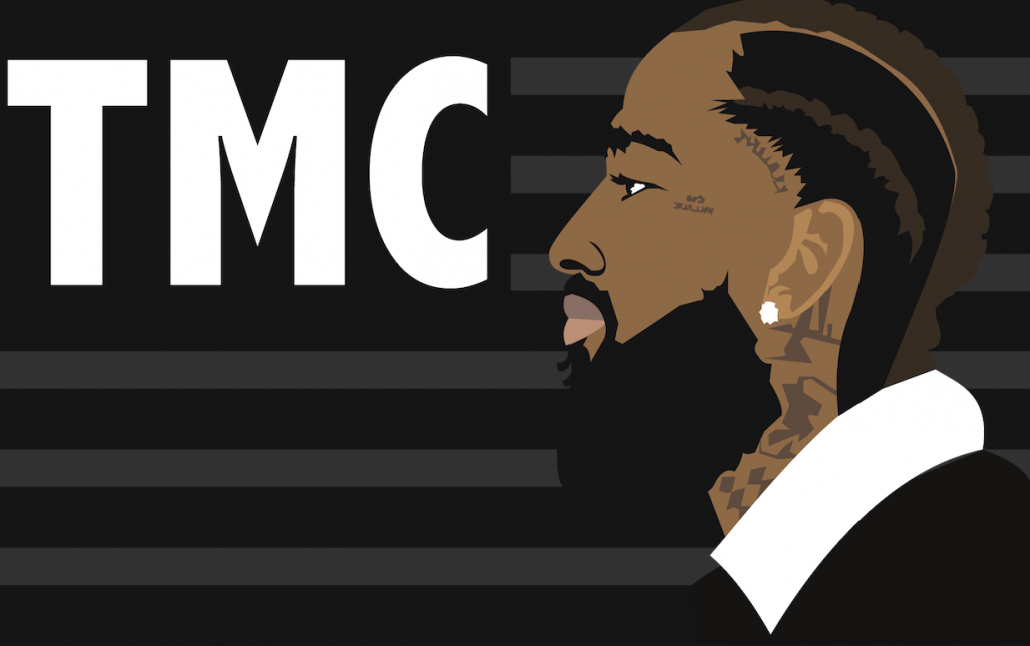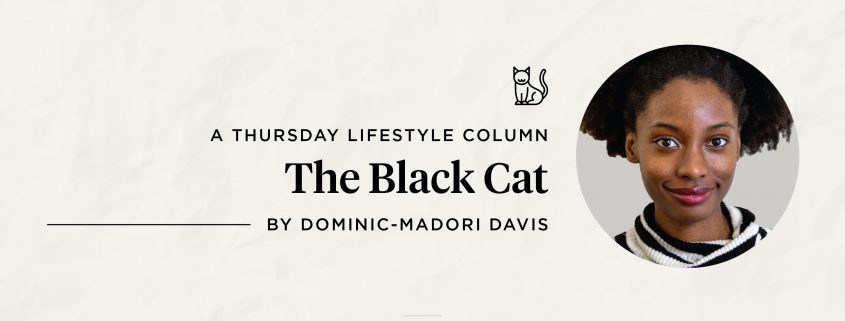The Black Cat: Nipsey Hussle taught us to dream big, give back

I am writing this to honor Nipsey Hussle, the entrepreneur and rapper who was murdered last week outside of his clothing shop The Marathon Clothing in South Los Angeles.
Hussle first opened Marathon Clothing with plans to expand across the country. Recognizing that black culture is one of the most profitable in this country — whose benefits are most often reaped by white people — he had plans to vertically integrate hip-hop to inspire artists to follow suit and gain more control over their content.
The moment I heard he had died, I, like many others, was stunned. I thought to myself — Here was someone who was dedicating his life to serving others. Someone who had stayed in his community after finding success. Here was someone who was doing this for the culture, who was leading the next wave of black entrepreneurs and innovators.
Hussle was a role model. Too often, rappers get rich and leave; they sell out to the mainstream and let white people in suits make billions off black culture.
Hussle was against that — he was for the culture.
“He was a protector and wanted us to be our best at all times,” his longtime girlfriend Lauren London told the Los Angeles Times. “He was a truth seeker and a truth speaker.”
Nipsey Hussle opened The Marathon Store in June 17 2017. Fans had lined up around the shop and Big Boy from REAL 92.3 hosted the event. I remember seeing the photos in XXL magazine of Nipsey smiling as he used big ceremonial scissors to cut the red ribbon.
“The whole city’s going to be out,” Hussle said in an interview with Power 106. “We’re going to have jumpers for the kids — games, giveaways. It’s going to be like a carnival on Crenshaw and Slauson.”
Hussle considered The Marathon to be a “smartstore” because of its various technological accomplishments including a smartphone app, which allowed for customers to access exclusive content. The app was designed by a 20-year-old named Iddris Sandu, who Hussle had met in Starbucks.
“My daughter tells me to pull into Starbucks on the way to the movie,” he said in an interview with Billboard magazine. “I’m thinking, ‘They got snacks at the movie theatre,’ but she’s telling me she wants a Unicorn frap, so I’m like, ‘OK, fine.’ [There,] we met Iddris.”
The two spoke about the ways in which they could fuse technology into a brick-and-mortar shop. This was the future of retail, they believed.
This was the future of hip-hop.
“It was crazy and by chance,” Hussle said in the same interview. “But I don’t think it was on accident.”
It took three weeks for Sandu to build the app. Later, Hussle named him the store’s chief technology officer.
Hussle wanted to combine physical and digital spaces to create a unique experience for his customers. He wanted to open “smartstores” across the country, in places like New York and San Francisco; each location holding a different retail philosophy, each providing a one-of-a-kind experience for their communities. In curtailing the middleman distributors such as iTunes and YouTube, Hussle and his co-owners would be able to profit from their own products and their exclusive content.
“The goal is to be an urban Sanrio,” he told Billboard. “Sanrio is a $5 billion-dollar company. These are content characters that exist in the screen first, and real world products were created around it … We haven’t seen that in hip-hop. We haven’t seen someone create a real world place where the brand lives and there’s products.”
In other words, Hussle was the future of hip-hop. The business of black music, though rooted in our artistic abilities, has always been exploited and used to generate profit for those who are outside of our community. Hussle wanted our communities to reap the benefits of our culture. He was a black entrepreneur with a clear vision of the future, whose innovative ideas had the potential to change the hip hop industry; whose innovative ideas could have changed the world.
“We want to be able to deliver our products that we own 100% to a retail experience we curate and control in an environment that is strategically designed to create an experience that’s engineered,” he told Billboard. “This is us trying to disrupt retail, create theme park for the brand … I think we’re in the process of seeing technology integrated with everything … We want to be one of the leaders.”
My favorite thing about Nipsey Hussle was that he always made sure to add his community into the narratives of his dreams. There was a quality about him, where no matter how successful he became, one could always see that he would never leave black people behind. He was the image of the modern day black entrepreneur who was doing everything right — doing everything we’ve always told young black children to do.
To grow up, and to dream.
His memorial will be held Thursday morning at the Staples Center.
Dominic-Madori Davis is a senior writing about black-owned businesses in Los Angeles. She is also the chief copy editor of the Daily Trojan. Her column, “The Black Cat,” runs every other Thursday.

